Use our 3-page graphic organiser to research and report on a significant natural disaster from the last 100 years.
Why Use Class Time for Natural Disasters?
Some might say, “Isn’t it sad?”
Of course! However…
When geological calamities like earthquakes, tsunamis, forest fires and other natural disasters occur, we gain insights that help us protect our communities and our planet.
But it’s up to us to share this information AND use it wisely.
With this activity, your students will become investigative journalists by researching a natural disaster of the 20th or 21st centuries. Then they’ll write a newspaper article that includes their fact-based evidence to inform ‘the public’.
This Inquiry-Based Learning Activity Is Two Exercises in One
Use this Natural Disasters task as a lesson assessment at the end of your Earth and Space Sciences unit or include it in your English lessons on:
- informative writing
- journalism & news
- inquiry & research.
Students will research a natural disaster using all three planning sheets to organise their data:
- Analyse primary and secondary sources and record information (in dot-point form) on the graphic organiser.
- Evaluate the usefulness of the collected information and select the best information to include in their newspaper article.
- Plan the layout of their newspaper article using the provided scaffold.
Once their graphic organiser is complete, they’ll use the collected data to write a newspaper article that presents the facts using appropriate vocabulary, quotes, and visual representations. They will adhere to the formal newspaper structure (headline, byline, lead, body, conclusion) to communicate their research.
Scaffolding + Extension Tips
Challenge fast finishers to take the task as far as they want to. For example, they can compare and contrast similar disasters by era or consider how similar disasters were handled in different parts of the world.
Support struggling students by pointing them towards age-appropriate resources to help them find practical information.
Alternatively, choose one or two of the inquiry questions and have them research those rather than all four.
Students of similar ability levels can work on the same topic in a guided group setting.
Easily Prepare This Resource for Your Students
Use the dropdown icon on the Download button to choose either the PDF or Word version of this resource.
Print this worksheet double-sided to save paper.
Additionally, project the worksheet and instruct students to record their answers in their notebooks.
We’ve got more teaching resources for students to explore and learn from worldwide natural disasters:
A 45 slide editable PowerPoint template for teaching a unit on natural disasters. Posters with pictures for eight different types of natural disasters. A worksheet to use when introducing the concept of natural disasters.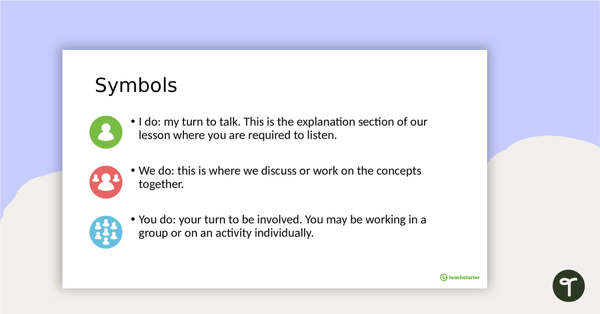
teaching resource
Natural Disasters PowerPoint
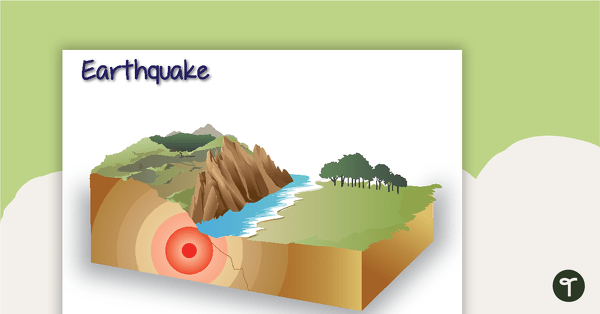
teaching resource
Natural Disaster Posters
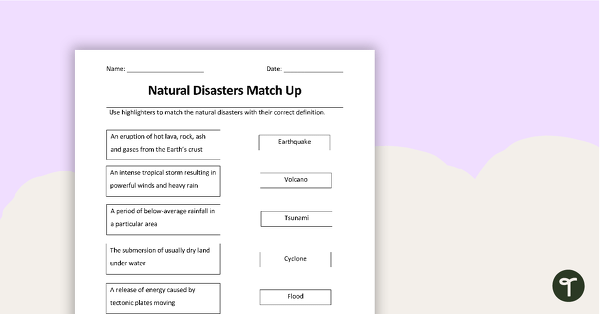
teaching resource
Natural Disasters Match-Up Worksheet
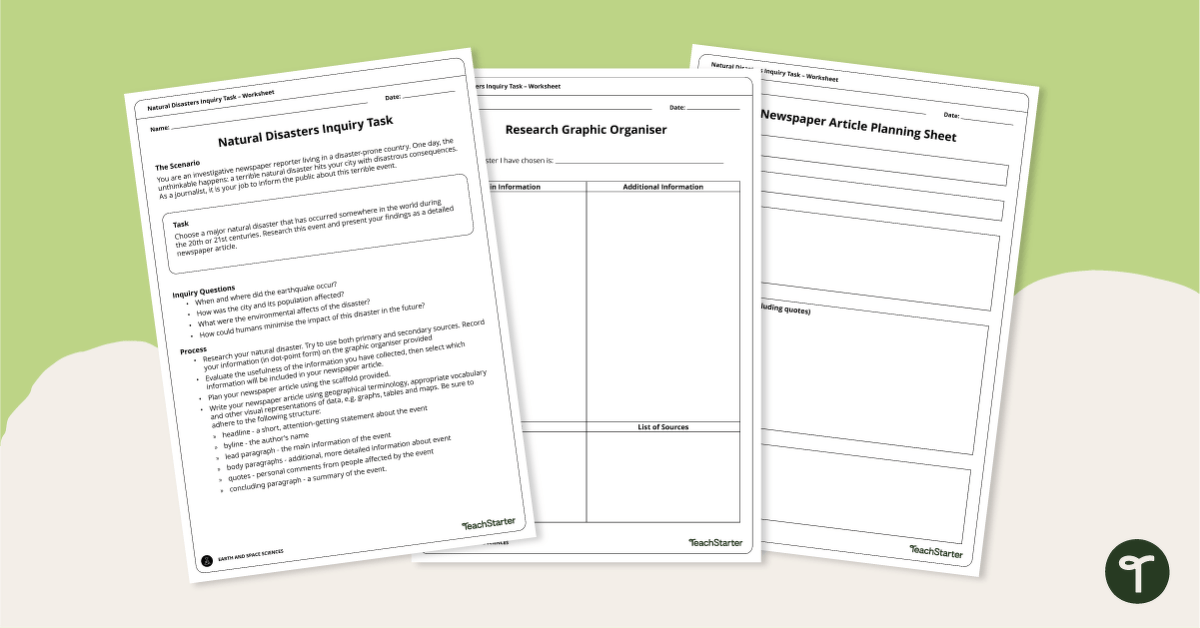

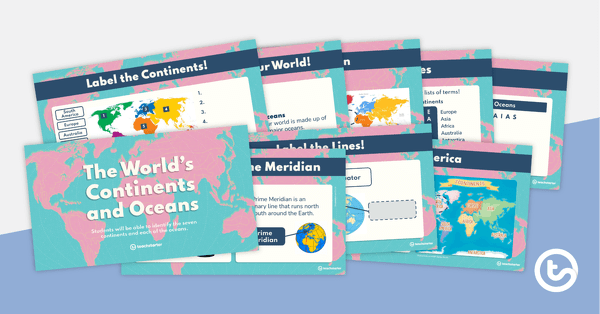
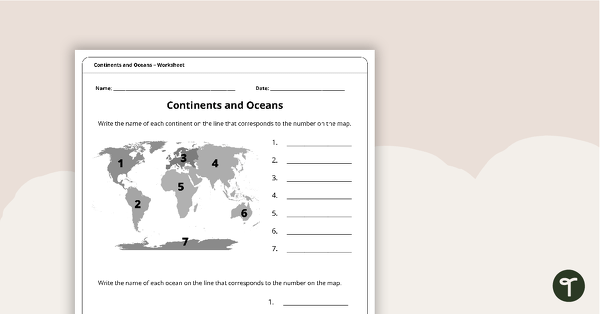
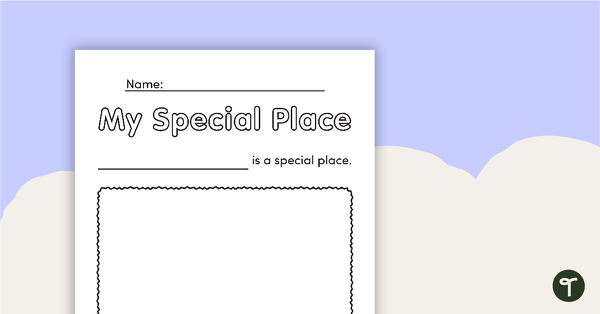
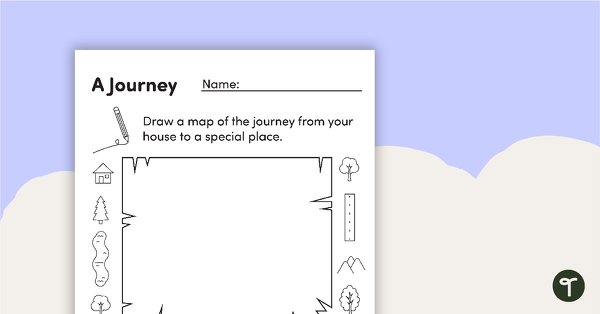
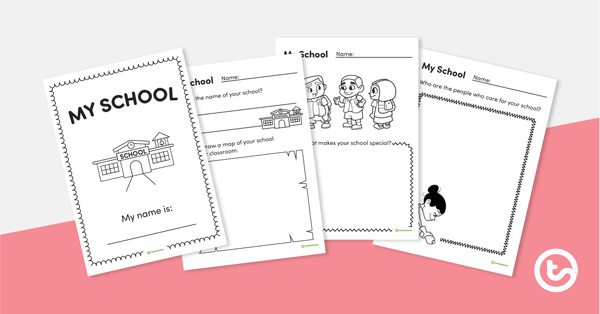
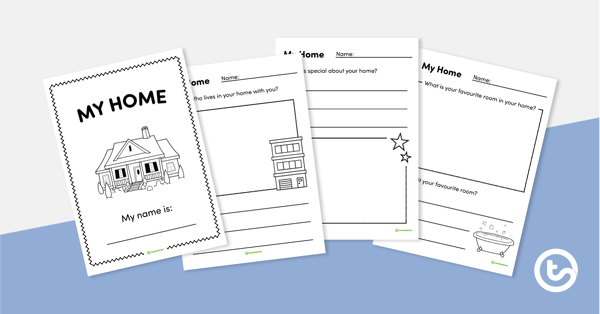

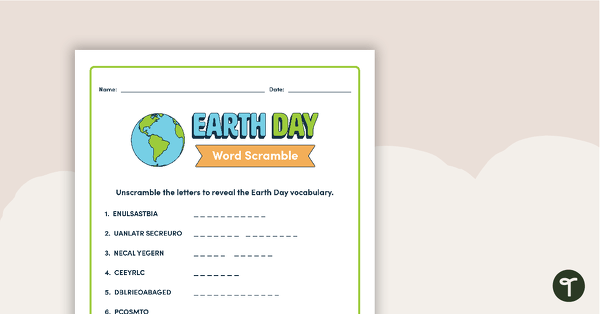
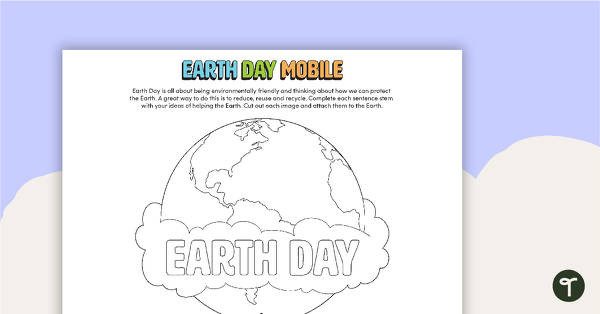
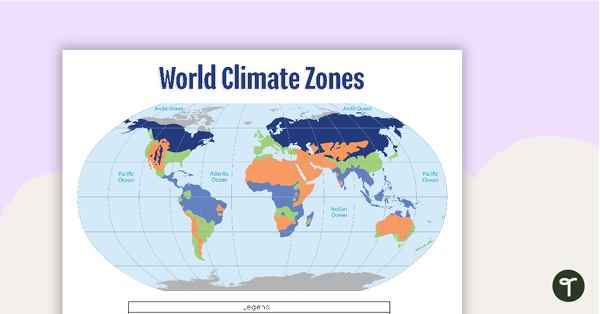
0 Comments
Write a review to help other teachers and parents like yourself. If you'd like to request a change to this resource, or report an error, select the corresponding tab above.